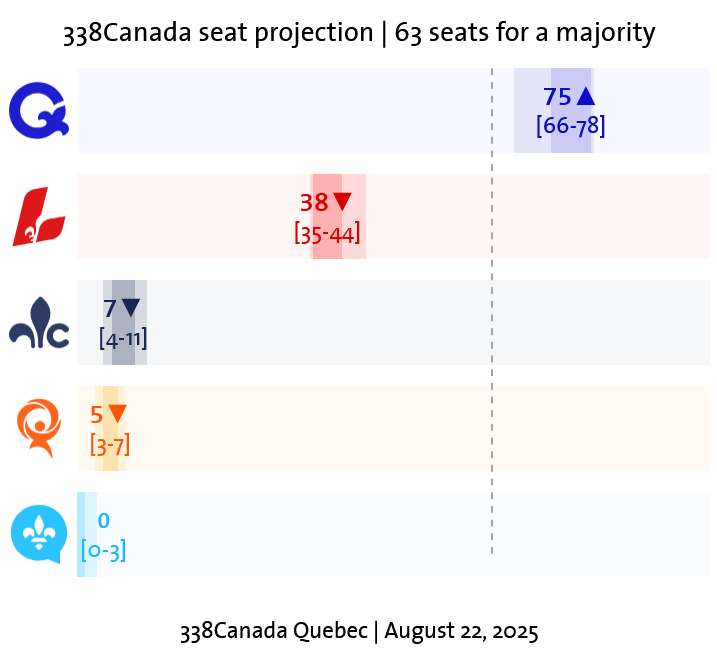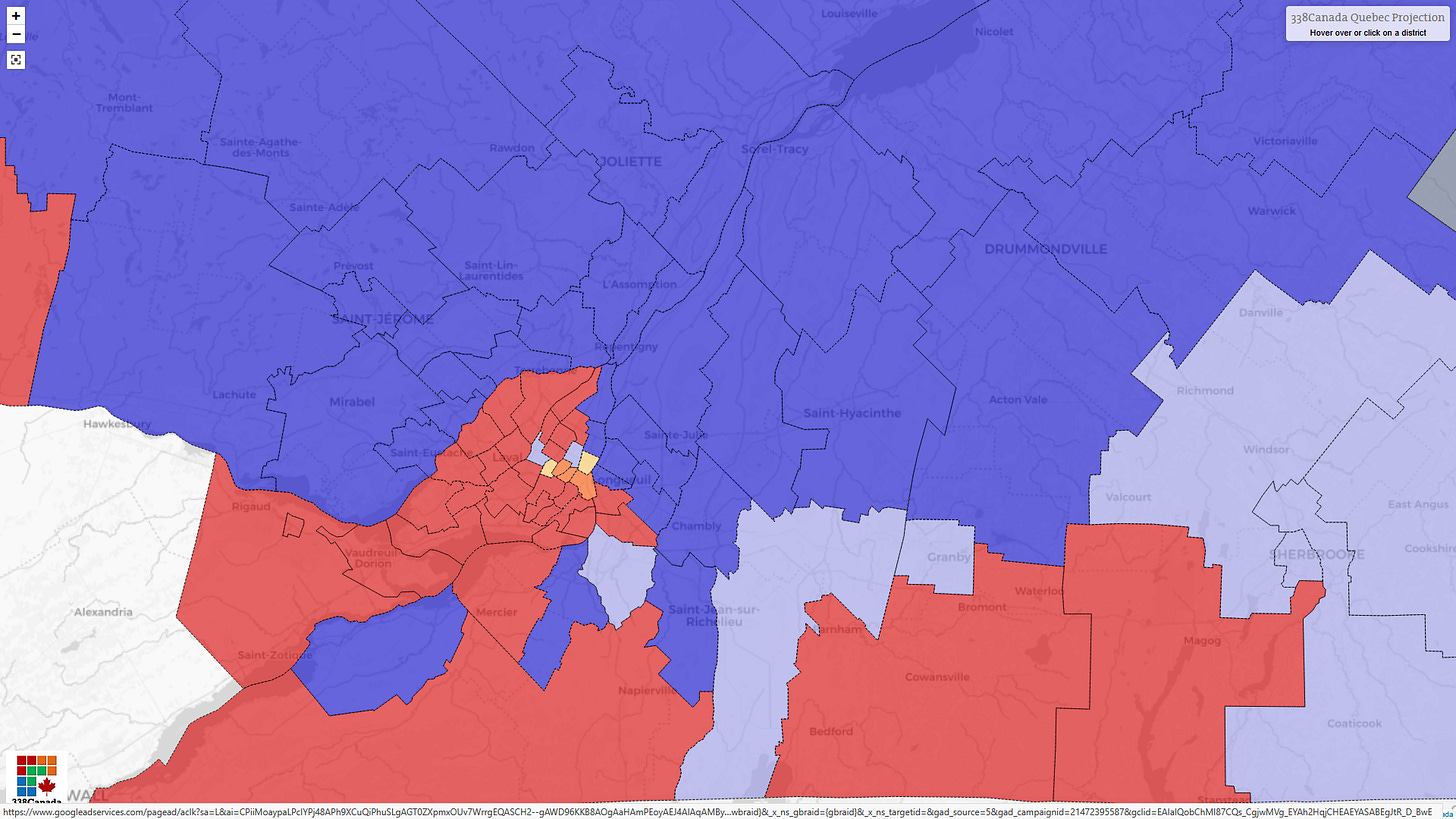338 Quebec Update: PQ Widens its Lead, as CAQ Support Slips
While support for Quebec sovereignty remains stable, the Parti Québécois sits in majority territory one year from election campaign.
One year from today, we will be on the eve of the next Quebec election campaign. And it promises to be a wild one. Today, we present an update to the 338Canada Quebec projection—a Polaroid-style snapshot of the current political landscape in the province.
And that snapshot looks increasingly promising for the Parti Québécois, while the incumbent CAQ is slipping out of favour amon Quebec voters.
The latest Quebec Léger poll, published Wednesday in Quebecor media, gives the Parti Québécois 35% support nationally (+5 points since June), including 45% among Francophone voters (+7). These results, combined with the current division of the vote in Quebec, would put the PQ comfortably in majority territory if an election were held this month.
However, let's remember that we made a similar analysis of the federal Liberals last December. The events of the spring quickly reshuffled the deck, and the numbers flipped on their heads. Politics can change at lightning speed.
Admittedly, the CAQ may not have a contender of Mark Carney's caliber (who could/would run for the party’s leadership if François Legault were to step down?), but last spring's events on the federal scene should serve as a lesson in humility for any political analyst.
For while the PQ dominates today and appears invincible, the data also reveal certain vulnerabilities. In short, the PQ's position is highly enviable, but not impregnable.
Let's now dive into this 338 Quebec update for August 22, 2025.
[338Canada.ca is an independent, ad-free media funded by reader subscriptions. If you enjoy our content, please consider subscribing—free and paid options available. Thank you for your support!]
Incorporating the new Léger poll, the 338canada model puts the Parti Québécois at 75 seats on average, twelve more than the majority threshold at the National Assembly (63).
With a 17-point lead over the CAQ (and 27 points among Francophones, according to Léger), the PQ is gaining ground in the suburbs of Montreal (Montérégie, Laurentides, Lanaudière), the central counties of the Quebec City region, and several Francophone regions that had turned overwhelmingly to the CAQ since 2018: Abitibi, Saguenay, Bas-Saint-Laurent, and even Centre-du-Québec (including Arthabaska).
The Quebec Liberal Party is not gaining ground in this update, but is consolidating its second place with an average of 38 seats. Léger gives it the lead in Greater Montreal, suggesting a comeback in Laval and the western half of Montérégie (Montreal’s south shore). The Outaouais and Eastern Townships regions are also starting to turn redder on the map.
Éric Duhaime's Conservative Party (PCQ) lost ground in the latest Léger poll, but its electoral base in the greater Quebec City area is strengthening. For over a year, we have seen this phenomenon take shape: the Quebec City region could be the scene of multiple battles between the PQ and the PCQ, with the other parties watching from the cheap seats.
The numbers are not improving for Québec solidaire. This projection gives it an average of only five seats, all on the island of Montreal: Mercier, Gouin, Sainte-Marie—Saint-Jacques, Hochelaga-Maisonneuve, and Laurier-Dorion. Other QS ridings, such as Taschereau, Sherbrooke, and Rosemont, remain enigmas, and we will need local (and hyperlocal) data to figure them out.
And finally, the CAQ. This projection does not see any ridings favorable to the CAQ, but the model may have some blind spots due to a lack of local data.
According to available figures, the most likely ridings for the CAQ include Champlain (Sonia LeBel), Granby (François Bonnardel), La Prairie (Christian Dubé), as well as Johnson, Iberville, and L'Assomption (François Legault).
The next year will be a busy one in Quebec politics.
When the CAQ took its first hits in the public opinion polls in 2023, it still had the luxury of time on its side. That advantage has now evaporated.
At this stage, the PQ has clearly won the “between-campaign” period. Soon will come the pre-campaign and, finally, the official campaign.
Support for sovereignty, however, has not followed the same curve as the PQ’s in Quebec. But more on this in an upcoming column.
Stay tuned.
Thank you for supporting the 338Canada newsletter.








